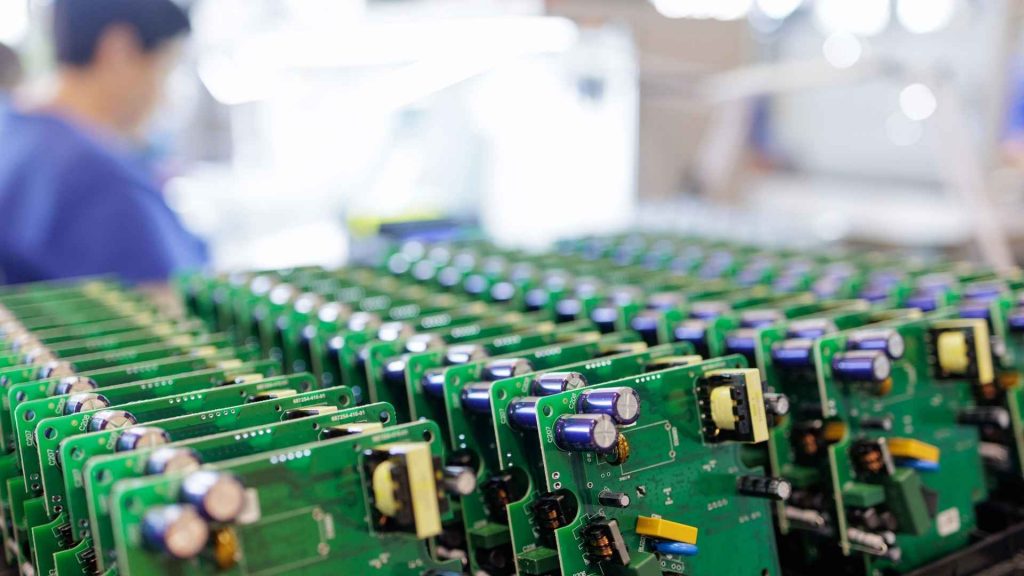Lean manufacturing has moved beyond being just another operational tool. It has become a mindset that underpins sustainable growth and long-term competitiveness. Efficiency has always been a measure of competitive strength. But in today’s global marketplace – where customer expectations shift quickly and supply chains are under pressure – it’s no longer a nice-to-have; it’s essential.
At its heart, lean is about value. It’s about focusing on what the customer truly cares about and removing everything else that gets in the way. The guiding principle is simple: create more with less (Womack & Jones, Lean Thinking).
Crucially, lean has nothing to do with reducing headcount. That misconception belongs in the past. Instead, it’s about using people, processes, and technology in a smarter way – cutting cycle times, reducing errors, and unlocking capacity. For electronic manufacturing services (EMS), this shift is reshaping the way providers work with their clients.

Two Pillars of Lean in Electronics Manufacturing Services (EMS)
Lean thinking in EMS is often built around two complementary approaches:
- Just-in-Time (JIT): Developed by Toyota as part of the Toyota Production System, JIT keeps production tightly aligned with demand. Only what’s needed is produced, exactly when it’s needed, and in the right quantity. The result is leaner operations, lower costs, and faster response to changing customer requirements.
- Kaizen (continuous improvement): Popularised in Japan and now a global management practice, Kaizen focuses on small, incremental changes made consistently over time. As Harvard Business Review highlights, Kaizen empowers people at every level to innovate and problem-solve, creating a culture where efficiency gains are sustained and expanded.
Together, these methods streamline supply chains, raise quality, and keep manufacturing efforts firmly anchored to customer value.
Tackling the Eight Wastes
Any EMS provider adopting lean will be focused on one goal: eliminating the eight common forms of waste identified in the Lean Enterprise Institute’s framework. These include:
- Unnecessary transportation of materials
- Excess inventory that ties up capital and space
- Inefficient employee movement caused by poor layout or workflow
- Waiting times due to disorganisation or delays
- Overproduction driven by fear of shortages
- Underutilised skills of capable staff
- Defects that lead to rework or scrap
- Unnecessary processes or features that customers won’t pay for
The impact of removing these inefficiencies is clear: better quality, faster delivery, and a more cost-competitive product.
Why Customers Benefit
When businesses work with a lean EMS partner, the advantages are both operational and commercial:
- Lower production costs that support stronger margins or more competitive pricing
- Higher product quality, with fewer errors reaching the customer
- Faster time-to-market, thanks to streamlined processes and reduced bottlenecks
- Closer collaboration, as lean encourages supplier and customer to work in genuine partnership
Unlike “low-cost” outsourcing models, lean EMS providers demonstrate that value isn’t only about labour rates. It’s about efficiency, reliability, and customer focus – benefits that often make a bigger difference in the long run (McKinsey & Company).
Lean as a Mindset Shift
For manufacturers, adopting lean is less about a single project and more about a commitment to continuous improvement. By putting customer value at the centre of every decision, companies can future-proof themselves against disruption and strengthen their position in a volatile market.
Not every organisation is ready to make the leap into a full lean transformation. But working with a lean EMS provider offers a practical way to experience the benefits first-hand – from cost reduction and better quality to improved responsiveness and resilience.
Lean manufacturing, at its core, is about balance: cutting out waste while maximising value. For electronics companies and their partners, that balance is more than a competitive advantage – it’s the foundation for long-term success.
Neil Owen, Vice President NOTE UK